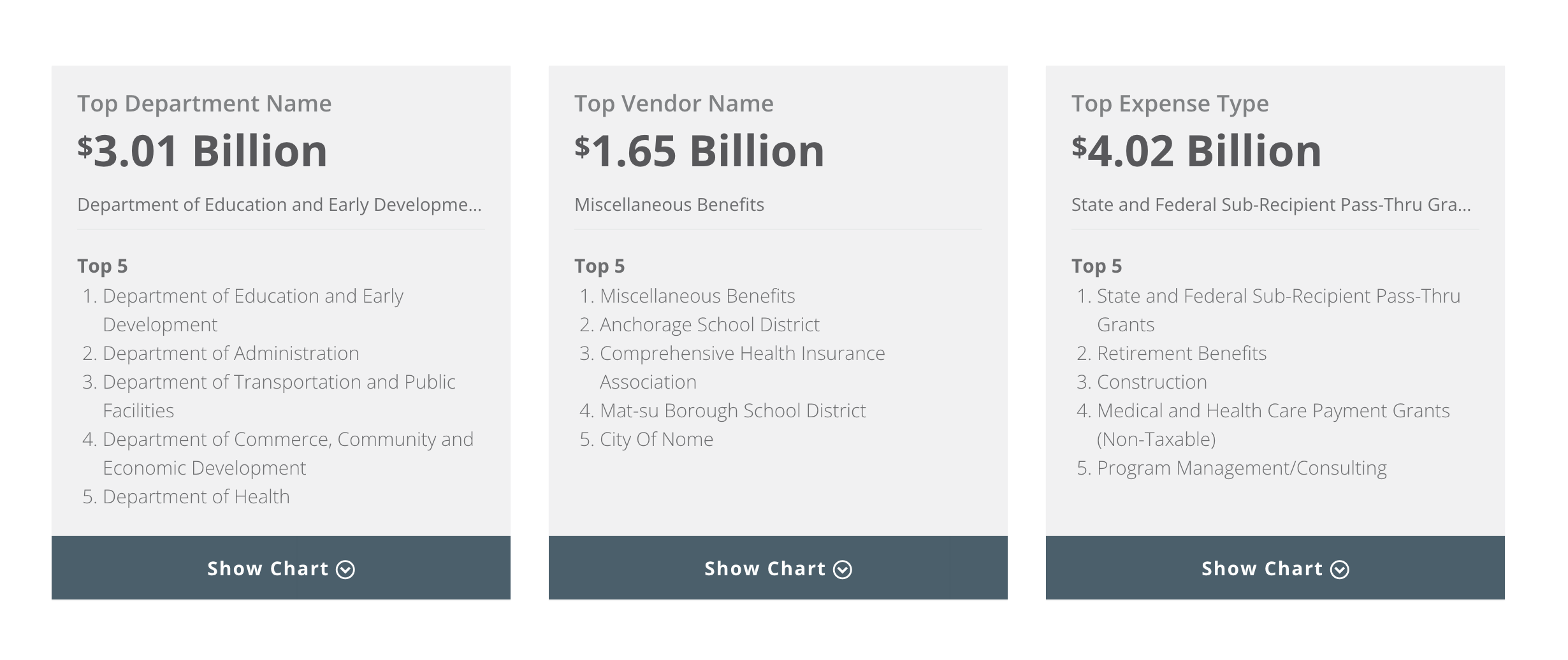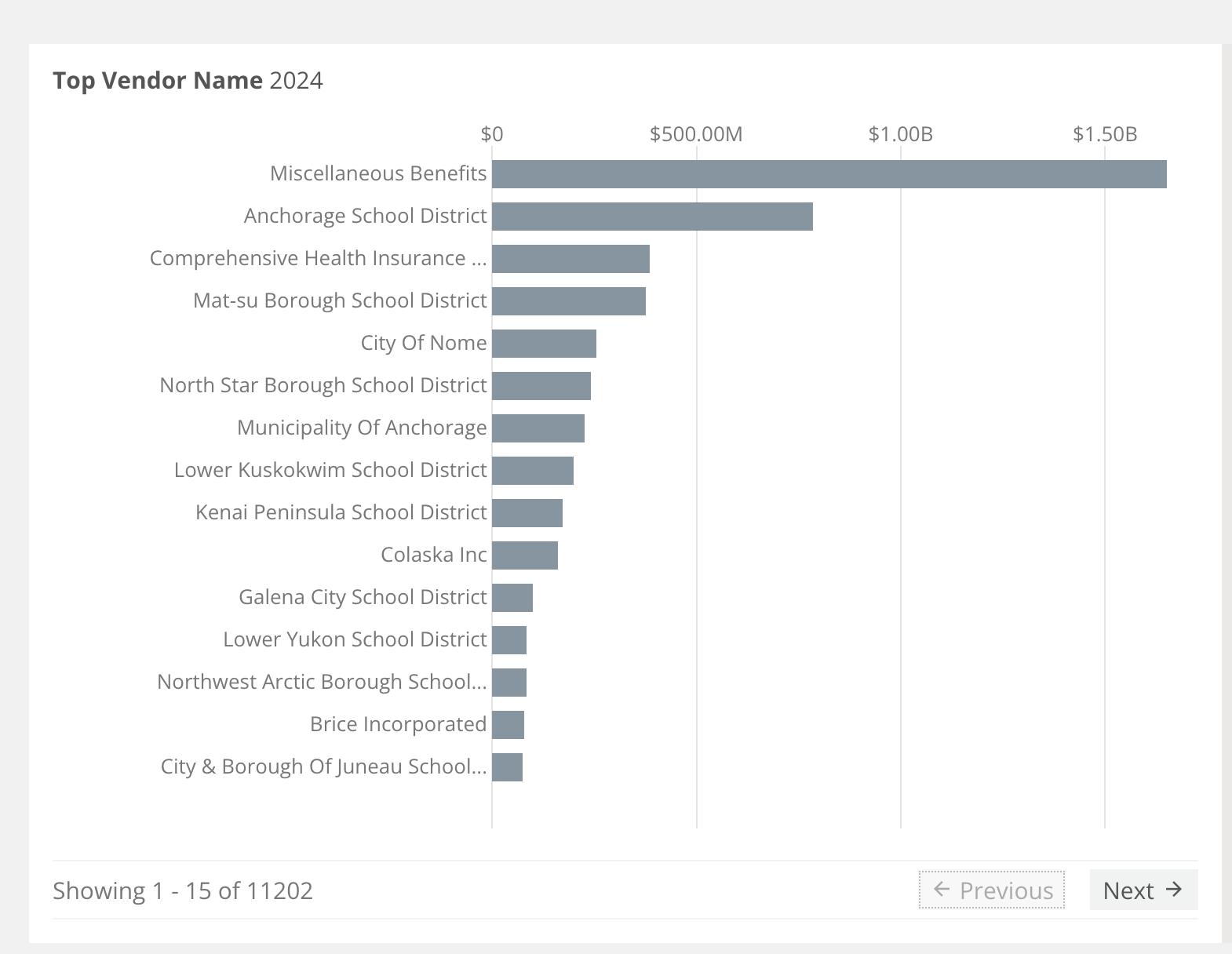Online state checkbook improves access to finance details, but it's not enough
As an online tool for tracking some state spending in Alaska, the new Checkbook Alaska website is an important advance over what has gone before.
But the state needs to do much more to live up to the 2022 law that says “The Alaska Online Checkbook Act shall be construed in favor of disclosure and transparency.”
The goal is to create a site that allows a member of the public to “understand all state financial information and that allows a member of the public to view all state financial information in a centralized location.”
At $784 million, the Anchorage School District is listed as the largest vendor receiving state funds, followed by the Comprehensive Health Insurance Association at $385 million.
The new site allows you to look up some state vendors and find out how much they have been paid. Of $9.30 billion spent this fiscal year, 471,078 transactions are reported.
I used this system for the first time in looking up details on Gov. Mike Dunleavy’s publicist in Washington, D.C., Mary Vought. She receives $5,000 a month under a no-bid contract that has been extended eight times in four years.
The new site lists monthly payments to Vought for “management consulting,” but it should include the full contract and a justification for the expense.
The site says that the state has spent $140 million with all vendors for “management consulting” this fiscal year, but it’s not enough simply to list the payments with no backup.
The information raises some important questions not answered on the site.
The big one is this: Why is the state paying an organization that is aimed at giving the public a chance to support schools with donations?
I have asked the education department for an explanation. In the interest of a more transparent government, there should be a way to allow the public to find the justification for spending millions of state dollars.
DonorsChoose.org says that 12,640 Alaska projects have been funded by donors.
The organization says the state education department has raised $9.3 million using DonorsChoose.org.
“Alaska Department of Education & Early Development has received support from 10,072 individuals from Alaska and 11,161 individuals out-of-state,” Donorschoose.org says on its website.
The Cordova Times had this story on the state relationship with DonorsChoose last summer and how it was used to distribute federal funds.
Information that describes the reason for a state expense is not the only thing missing from the new state checkbook.
I have been trying for years now to get a handle on the millions spent by the Dunleavy administration on what it calls “statehood defense,” which are typically political disputes that the governor and attorney general want to battle in the courts.
The attorney general’s office lists $8.6 million spent on 5,075 transactions. The biggest single transaction is $1.4 million to the Joan Wilkerson Qualified Settlement Fund on July 6, 2023, followed by $586,789 in legal settlement fees to the Brena, Bell & Walker law firm in Anchorage.
But the attorney general’s office is not revealing on this website what it pays to lawyers and others under contract.
For instance, the no-bid contract with former Attorney General Craig Richards as “statehood coordinator” that paid him $12,000 a month for the last year is not available. Neither is the new Richards no-bid contract that pays him $10,000 a month.
This information is not confidential. The state needs to do much more to make the online checkbook as useful as it should be for the public.
ON ANOTHER TOPIC:
The retired Fairbanks lawyer who writes the excellent Wickersham’s Conscience blog with a record I will never match for daily consistency, has some cogent thoughts on the legacy of the late Donna Gilbert.
Gilbert, 80, was a polarizing figure who spent decades attacking public employees in Fairbanks and calling for lower taxes, which led to a decline in the level of public services.
WC writes, “In fact, in the end Donna Gilbert was one of the people who left Fairbanks. She closed her business, the Ranch Motel, in 2013 and moved to Leesburg, Florida. At the time she said she was closing the motel because of increased utility costs, a higher neighborhood crime rate and fewer summertime tourists. A more self-reflective person than Donna Gilbert might have thought about whether thirty years of tax caps might have had something to do with a reduced police presence, fewer tourists and a narrower base of rate payers supporting the utility systems. But introspection was also not one of Donna Gilbert’s strengths.”
“Donna Gilbert died last week. Her would-be political heir, the execrable Tammie Wilson, who lacks Gilbert’s smarts, political skills, charisma and charm, is already attempting to succeed to the role she held. Again, you can see the lack of introspection, the lack of awareness of the consequences of an ongoing lack of trust and confidence in our representative government. And a peculiar kind of selfishness that puts an unwillingness to invest your taxes in your community ahead of the future of the community you live in,” he said.
Your contributions help support independent analysis and political commentary by Alaska reporter and author Dermot Cole. Thank you for reading and for your support. Either click here to use PayPal or send checks to: Dermot Cole, Box 10673, Fairbanks, AK 99710-0673.


